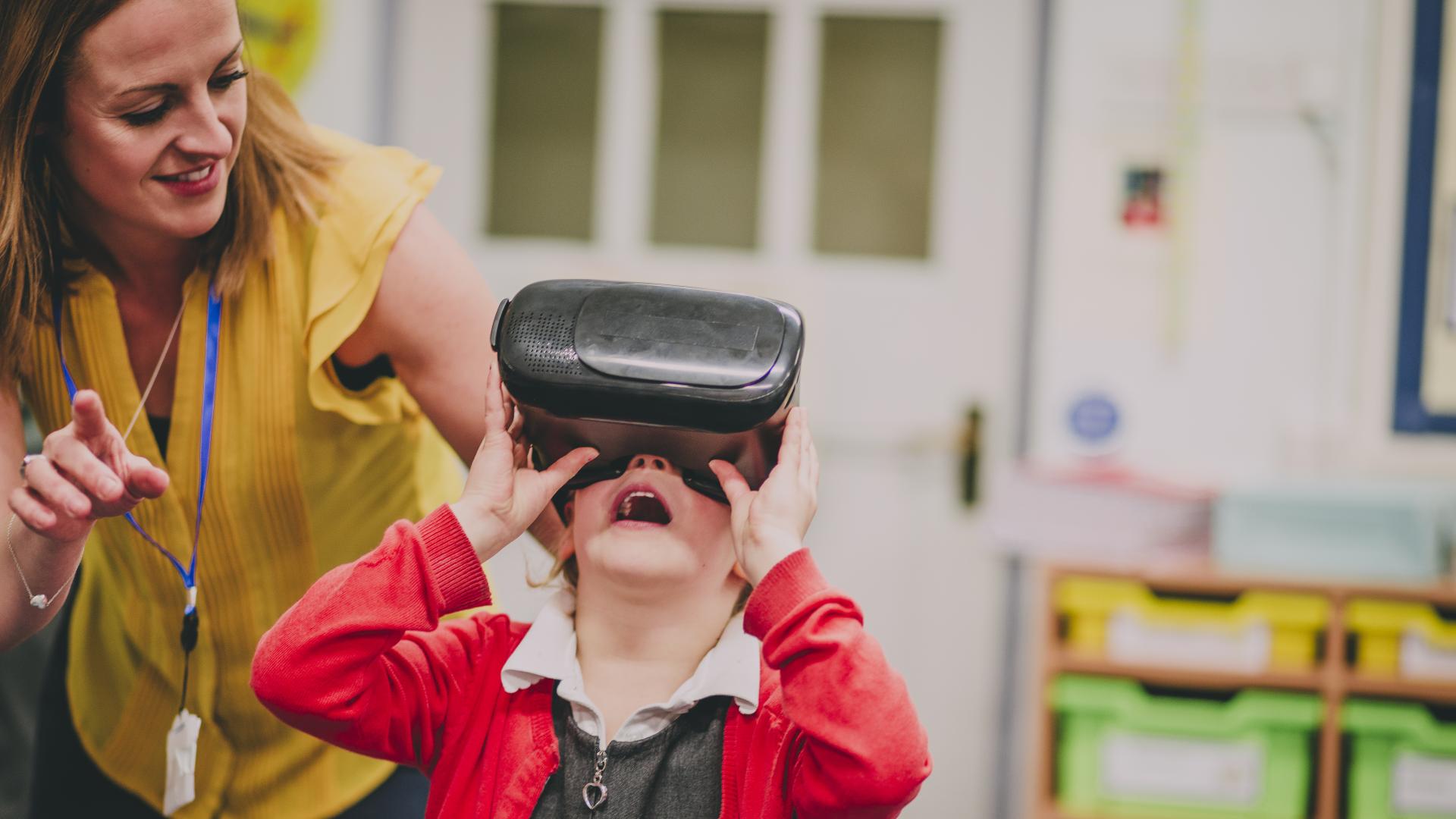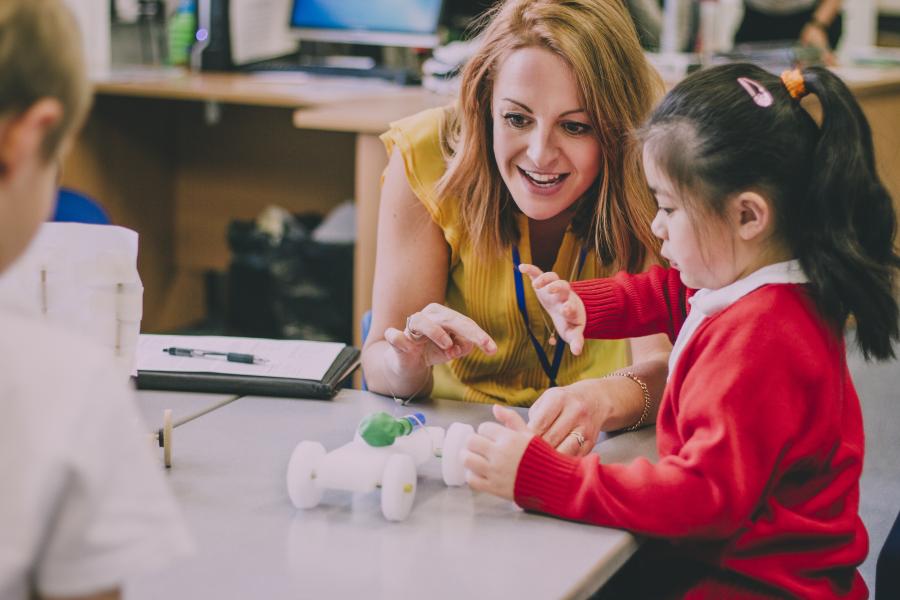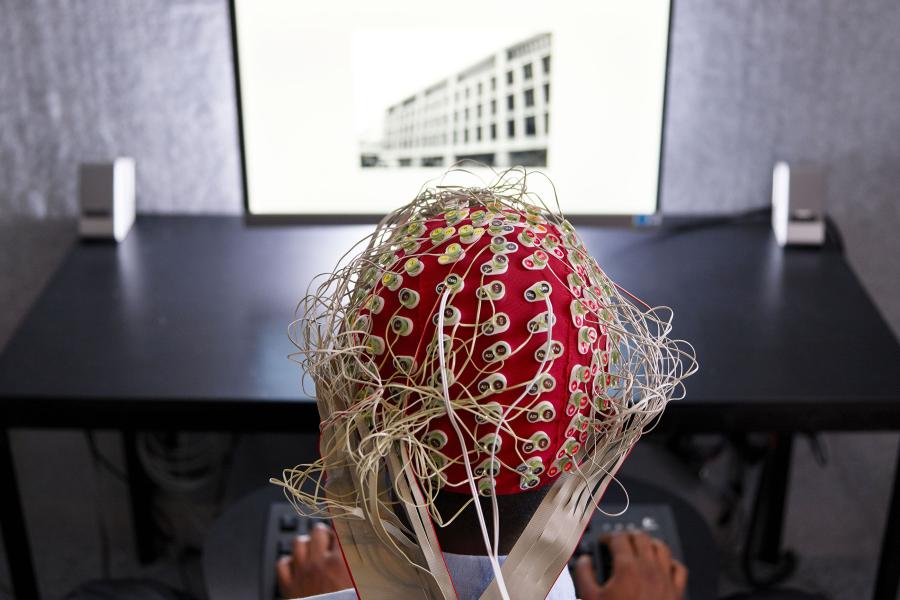About This Course
These subjects enable you to study the social and psychological processes that impact children’s lives today. You’ll engage with a broad range of topics relevant to 21st century childhood and youth and investigate behaviour and the biological, social and individual factors that affect human psychology. This can lead to a wide range of careers including teaching, social work, counselling and law where you’ll make a real difference to the lives of young people.
The fields of Childhood and Youth Studies and Psychology complement each other naturally. They support a combined approach to understanding the development of children and young people from biological and psychological perspectives, whilst encouraging an understanding of these elements within areas that affect the lives of children and young people most, such as their education, their interaction with peers and adults, and their wellbeing. This course allows you to study Psychology as part of a joint honours degree (50% Psychology, 50% Childhood Studies and Youth).
The Psychology part of the degree covers the investigation of behaviour from infancy to old age, and deals with the biological, social and individual factors that affect human psychology taught by psychology academics with renowned expertise in their fields. For the Childhood and Youth part of the course, you’ll follow innovative topics led by experienced education staff to develop your understanding of the history of childhood, children’s rights, the nature of childhood and the role of adults working with children in a national, European and international context. You’ll engage in academic study in the fields of psychology, sociology, social policy, education, health and welfare relating to children’s lives.
Why choose Bangor University for this course?
- Work placements to develop your understanding of children’s needs and development.
- Professional and academic expertise across a diverse range of areas such as children’s rights, family law, bilingualism, education, social care, mental health, literacy, additional learning needs and inclusion.
Additional Course Options
This course is available with a Placement Year option where you will study for 1 additional year. The Placement Year is undertaken at the end of the second year and students are away for the whole of the academic year.
The Placement Year provides you with a fantastic opportunity to broaden your horizons and develop valuable skills and contacts through working with a self-sourced organisation relevant to your degree subject. The minimum period in placement (at one or more locations) is seven calendar months; more usually you would spend 10-12 months with a placement provider. You would normally start sometime in the period June to September of your second year and finish between June and September the following year. Placements can be UK-based or overseas and you will work with staff to plan and finalise the placement arrangements.
You will be expected to find and arrange a suitable placement to complement your degree and will be fully supported throughout by a dedicated member of staff at your academic School and the University’s Careers and Employability Services.
You will have the opportunity to fully consider this option when you have started your course at Bangor and can make an application for a transfer onto this pathway at the appropriate time. Read more about the work experience opportunities that may be available to you or, if you have any questions, please get in touch.
This course is available with an International Experience Year option where you will study or work abroad for 1 additional year. You will have ‘with International Experience’ added to your degree title on graduating.
Studying abroad is a great opportunity to see a different way of life, learn about new cultures and broaden your horizons. With international experience of this kind, you’ll really improve your career prospects. There are a wide variety of destinations and partner universities to choose from. If you plan to study in a country where English is not spoken natively, there may be language courses available for you at Bangor and in your host university to improve your language skills.
You will have the opportunity to fully consider this option at any time during your degree at Bangor and make your application. If you have any questions in the meantime, please get in touch.
Read more about the International Experience Year programme and see the studying or working abroad options on the Student Exchanges section of our website.
Course Content
On this course you will study 50% Childhood and Youth Studies and 50% Psychology.
The choices of modules in each discipline complement each other, giving students the option to support specific areas of study by examining children’s development from biological and psychological perspectives and reinforcing these by placing within social and educational contexts. Students study a choice of modules that reflects a balance from each discipline. Combined study of these modules will allow students to develop a pathway into fields related to child-centred psychology, care provision for young people and education.
Study is supported by numerous opportunities to conduct research into fields that are guided by the course areas. This allows freedom for students to develop their interests in specific fields of psychology and to apply to, and combine with, issues that affect children and young people within their own spaces.
You’ll learn through a mixture of lectures, seminars, use of digital resources and practical workshops. Lectures and seminars make creative use of a variety of different digital resources and media in order to help you plan, record and to support your progress. An integral element of the programme is the range of guest speakers and educational visits that enrich and reinforce your learning.
Many of our modules are offered both through the medium of Welsh and English. Students can choose to have a Welsh speaking personal Tutor and complete assignments through the medium of Welsh. The assessments vary from module to module and range from essays, presentations and film making to MCQ tests and exams.
Your Research
Research is an important aspect of this course. As part of your Research Methods modules, you’ll be taking part in practical sessions where you’ll learn how to design studies, run your own experiments, gather and analyse data and report your findings. These skills will give you a firm foundation ready for year 3 when you’ll conduct your own research.
Modules for the current academic year
Module listings are for guide purposes only and are subject to change. Find out what our students are currently studying on the Childhood and Youth Studies and Psychology BA (Hons) Modules page.
Course content is for guidance purposes only and may be subject to change.
Facilities
- Workshops on issues as diverse as children’s literacy, children and technology and children’s rights supported by specialists in the fields.
- Use of digital media and resources to teach, to support research, to help record progress and to share work.
- Involvement with meetings and conferences on a range of issues relating to the course, including children’s voices and the role of childhood and youth within decision-making processes.
- Regular guest presentations by specialists in the field in areas related to the different Childhood and Youth pathways.
- Educational visits to the local area, to places of national significance and, in some cases, to international locations.
- Opportunities to work alongside employers and service providers in fields relating to childhood and youth, including education, care services and agencies that support provision for young people.
- Regular contact and support with institutions which are important to the field, including schools, social care organisations, children’s rights organisations. Maintenance of contact with these institutions to help develop ideas and pathways linked to individuals’ career aspirations.
- The psychology department at Bangor is one of the oldest and largest in the UK with an excellent reputation for teaching and research and a wide range of specialist research laboratories including MRI, ERP, TMS & eye tracking.
General University Facilities
Library and Archive Services
Our four libraries provide a range of attractive study environments including collaborative work areas, meeting rooms and silent study spaces.
We have an extensive collection of books and journals and many of the journals are available online in full-text format.
We house one of the largest university-based archives not only in Wales, but also the UK. Allied to the Archives is the Special Collections of rare printed books.
Learning Resources
There is a range of learning resources available, supported by experienced staff, to help you in your studies.
The University’s IT Services provides computing, media and reprographics facilities and services including:
- Over 1,150 computers for students, with some PC rooms open 24 hours a day
- Blackboard, a commercial Virtual Learning Environment, that makes learning materials available on-line.
Course Costs
General University Costs
Home (UK) students
- The cost of a full-time undergraduate course is £9,000 per year (2021/22 entry and 2022/23 entry).
- The fee for all placement, international, and sandwich years is £1,350 (2021/22 and 2022/23).
- More information on fees and finance for Home (UK) students.
International (including EU) students
Additional Costs
There are also some common additional costs that are likely to arise for students on all courses, for example:
- If you choose to study abroad or take the International Experience Year as part of your course.
- If you attend your Graduation Ceremony, there will be a cost for gown hire (£25-£75) and cost for additional guest tickets (c.£12 each).
Course-specific additional costs
Depending on the course you are studying, there may be additional course-specific costs that you will be required to meet. These fall into three categories:
- Mandatory Costs: these are related to a particular core or compulsory module that you’ll be required to complete to achieve your qualification e.g. compulsory field trips, uniforms for students on placement, DBS Check.
- Necessarily Incurred Costs: these may not be experienced by all students, and will vary depending on the course e.g. professional body membership, travel to placements, specialist software, personal safety equipment.
- Optional Costs: these depend on your choice of modules or activity and they are shown to give you an indication of the optional costs that may arise to make sure your choice is as informed as possible. These can include graduation events for your course, optional field trips, Welcome Week trips.
Entry Requirements
Offers are tariff based, 96-128 tariff points from a Level 3 qualification* e.g.:
- A Levels (applicants are strongly preferred to have at least one relevant science - Maths, Biology, Human Biology, Physics, Chemistry, Statistics, Psychology and Science)
- BTEC National Extended Diploma: MMM - DDM
- Cambridge Technical Extended Diploma: MMM - DDM
- City & Guilds Advanced Technical Extended Diploma (1080): MMM - DDM
- International Baccalaureate Diploma
- Access to Higher Education Diploma
- NCFE CACHE Level 3 Extended Diploma
- Irish Leaving Certificate: 96- 128 points from a minimum of 4 Higher Subjects
- Welsh Baccalaureate
Applicants are required to undergo an enhanced DBS check for the child workforce including a check of the children’s barred list. Applicants who have lived or worked outside the UK are also required to undertake a criminal records check in their countries of residence .
International Candidates: school leaving qualifications and college diplomas are accepted from countries worldwide (subject to minimum English Language requirements). More information here.
We also welcome applications from mature applicants.
*For full details go to our website and for a full list of accepted Level 3 qualifications, go to www.ucas.com.
General University Requirements
To study for a degree, you’ll be asked for a minimum of UCAS Tariff points. For a fuller explanation of the UCAS Tariff Points, please see www.ucas.com.
We accept students with a wide range of qualifications and backgrounds and consider each application individually.
All students need to have good basic skills and the University also values IT and communication skills.
As part of the University’s policy, we consider applications from prospective disabled students on the same grounds as all other students.
We also consider applications from mature students who can demonstrate the motivation and commitment to study a university programme. Each year we enrol a significant number of mature students. For more information about studying as a mature student, see our Studying at Bangor section of the website.
EU and International Students' Entry Requirements
For detailed guidance on the entry requirements for EU and International Students, including the minimum English Language entry requirement, please visit the Entry Requirements by Country pages. International applicants can also visit the International Education Centre section of our website for further details.
Bangor University offers International Incorporated Bachelor Degrees for International students whose High School qualification is not equivalent to the UK school leaving qualification. The first year (or Year 0) is studied at Bangor University International College, an embedded College on our University campus and delivered by Oxford International Education Group.
Careers
The multi-disciplinary approach of the Childhood and Youth and Psychology degree offers a broad range of career choices in education and allied professions in the public and private sector, including health, social care, youth and community work. Alternately, some students continue their studies on a Masters programme or apply for a place on a PGCE Primary course.
The combined Childhood and Youth and Psychology course appeals to a very broad range of future employment opportunities within fields related to supporting and working with children and young people. The ability of graduates from these combined disciplines to understand children’s development and to locate and apply this knowledge within the context of roles and institutions that support children and young people, is highly sought after by employers in the field, and is essential in supporting careers in education, child-centred psychology and care services for young people.
Opportunities at Bangor
The University’s Careers and Employability Service provides a wide range of resources to help you achieve your graduate ambitions.
The Bangor Employability Award (BEA)
The BEA is a comprehensive online course that you can work through at your own pace, taking you through all the steps you need to take to explore, prepare and apply for your dream career.
Internships
Bangor University runs a paid internship scheme within the university’s academic and service departments.
Student Volunteering
Volunteering widens your experience and improves your employability. Find out more about volunteering on the Students’ Union’s website.





